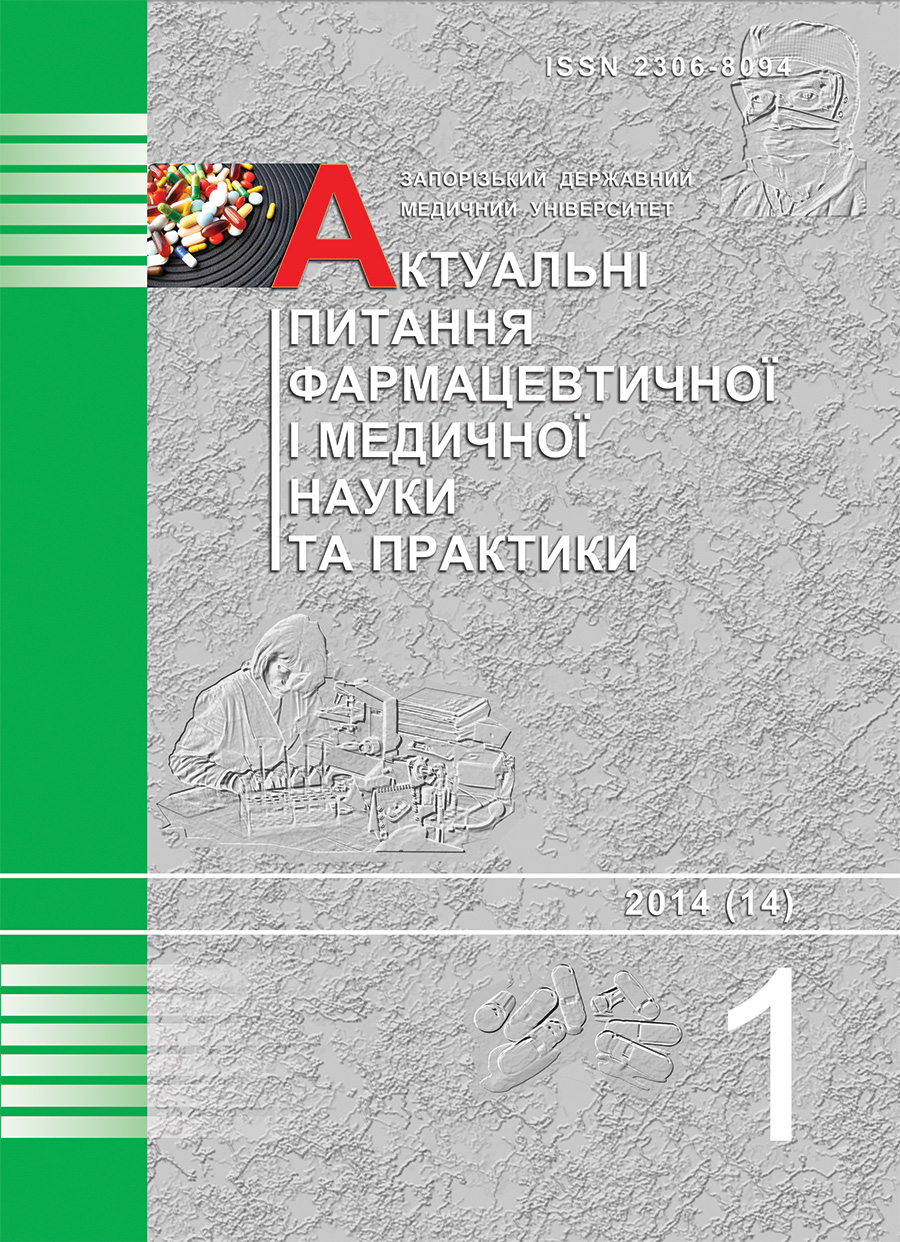Methodical aspects in teaching pharmacology to foreign students
DOI:
https://doi.org/10.14739/2409-2932.2014.1.24846Keywords:
pharmacology teaching, foreign students, innovations, learning modulesAbstract
The methods of teaching pharmacology to international students in groups with English language learning have been generalized and recommendations in the educational process have been developed. Basic contradictions of the process of training future doctors, actualizing the need to improve the content, forms and methods of teaching are considered. Pedagogical objectives underlying the formation of pharmacology modern learning technologies are listed. In particular, the technique of students’ self-organization has been represented, its advantages are justifi ed, and criteria for independent work are highlighted. The factors proving the necessity of the introduction and systematic use of interactive teaching methods in the educational process have been analyzed; methods to stimulate students’ interest in learning have been revealed.
References
Бабкіна О. Проблема підвищення якості вищої освіти в Україні у контексті Болонських реформ / О. Бабкіна // Освіта і управління. – 2006. – Т. 9. – №1. – С. 91–95.
Визначення та забезпечення цілей навчання у медичних навчальних закладах відповідно до цілей державних стандартів та принципів Болонського процесу : метод. посібник / В.М. Казаков, І.С. Вітенко, О.М. Талаєнко [та ін.] ; Донецький мед. ун-т. – К. ; Донецьк, 2007. – 100 с.
Ковальчук Л.Є. Удосконалення самостійної роботи студентів – необхідна умова реалізації ідей Болонського процесу / Л.Є. Ковальчук // Галицький лікар : вісник. – 2008. – Т. 15. – № 1. – С. 79–81.
Москаленко В.Ф. Про шляхи удосконалення якості вищої медичної освіти в контексті вимог Болонського процесу / В.Ф. Москаленко, О.П. Яворовський, Л.І. Остапюк // Науковий вісник Національного медичного університету ім. О.О. Богомольця. – 2005. – № 1–2. – С. 106–111.
Національна академія наук України: проблеми розвитку та входження в європейський науковий простір / [за ред. О.С. Онищенка]. – К., 2007. – 680 с.
Аnuradha J. Innovations in pharmacology teaching / J. Аnuradha, T. Mayank // Int.J.Pharm.Beomed.Res. – 2010. – № 1(2). – P.62–64.
Crosier D. The Bologna Process:Its impact on higher education development in Europe and beyond, Fundamentals of Educational Planning / D. Crosier, T. Parveva. – Paris : UNESCO, 2013. – 97 p.
The Bologna Process – The European Higher Education Area in the new decade, Comminiquй of the Conference of European Ministers Responsible for Higher Education, Leuven and Louvain-la-Neuve, 28–29 April 2009. – Аccess mode: http://www.ond.vlaanderen. be/hogeronderwijs/bologna /conference/ documents /Leuven_Louvain-la-Neuve_Communiqu%C%A9_April_2009.pdf.
Downloads
How to Cite
Issue
Section
License
Authors who publish with this journal retain copyright and grant the journal right of first publication with the work simultaneously licensed under a Creative Commons Attribution License that allows others to share the work with an acknowledgement of the work's authorship and initial publication in this journal.


